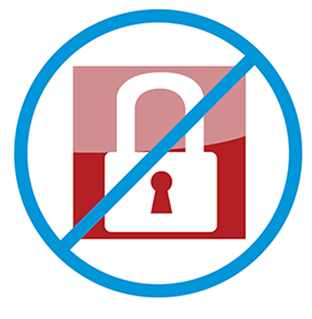NOTE: This is historical content that may contain outdated information.

Ransomware attacks that hold your data hostage using unauthorized data encryption are spreading rapidly and are particularly nefarious because they do not require any special access privileges to your data. A ransomware attack may be launched via a sophisticated software exploit as was the case with the recent “WannaCry” ransomware, but there is nothing stopping you from downloading and executing a malicious program that encrypts every file you have access to. If you fail to pay the ransom, the result will be indistinguishable from your simply deleting every file on your system. To make matters worse, ransomware authors are expanding their attacks to include just about any storage you have access to. The list is long, but includes network shares, Cloud services like DropBox, and even “shadow copies” of data that allow you to open previous versions of files.To make matters even worse, there is little that your operating system can do to prevent you or a program you run from encrypting files with ransomware just as it can’t prevent you from deleting the files you own. Frequent backups are touted as one of the few effective strategies for recovering from ransomware attacks but it is critical that any backup be isolated from the attack to be immune from the same attack. Simply copying your files to a mounted disk on your computer or in the Cloud makes the backup vulnerable to infection by virtue of the fact that you are backing up using your regular permissions. If you can write to it, the ransomware can encrypt it. Like medical workers wearing hazmat suits for isolation when combating an epidemic, you need to isolate your backups from ransomware.
OpenZFS snapshots to the rescue
OpenZFS is the powerful file system at the heart of every storage system that iXsystems sells and of its many features, snapshots can provide fast and effective recovery from ransomware attacks at both the individual user and enterprise level as I talked about in 2015. As a copy-on-write file system, OpenZFS provides efficient and consistent snapshots of your data at any given point in time. Each snapshot only includes the precise delta of changes between any two points in time and can be cloned to provide writable copies of any previous state without losing the original copy. Snapshots also provide the basis of OpenZFS replication or backing up of your data to local and remote systems. Because an OpenZFS snapshot takes place at the block level of the file system, it is immune to any file-level encryption by ransomware that occurs over it. A carefully-planned snapshot, replication, retention, and restoration strategy can provide the low-level isolation you need to enable your storage infrastructure to quickly recover from ransomware attacks.
OpenZFS snapshots in practice
While OpenZFS is available on a number of desktop operating systems such as TrueOS and macOS, the most effective way to bring the benefits of OpenZFS snapshots to the largest number of users is with a network of iXsystems TrueNAS, FreeNAS Certified and FreeNAS Mini unified NAS and SAN storage systems. All of these can provide OpenZFS-backed SMB, NFS, AFP, and iSCSI file and block storage to the smallest workgroups up through the largest enterprises and TrueNAS offers available Fibre Channel for enterprise deployments. By sharing your data to your users using these file and block protocols, you can provide them with a storage infrastructure that can quickly recover from any ransomware attack thrown at it. To mitigate ransomware attacks against individual workstations, TrueNAS and FreeNAS can provide snapshotted storage to your VDI or virtualization solution of choice. Best of all, every iXsystems TrueNAS, FreeNAS Certified, and FreeNAS Mini system includes a consistent user interface and the ability to replicate between one another. This means that any topology of individual offices and campuses can exchange backup data to quickly mitigate ransomware attacks on your organization at all levels.
You can email us at info@ixsystems.com or call 1-855-473-7449, or 1-408-493-4100 (outside the US) to discuss your storage needs with one of our solutions architects.
Michael Dexter, Senior Analyst